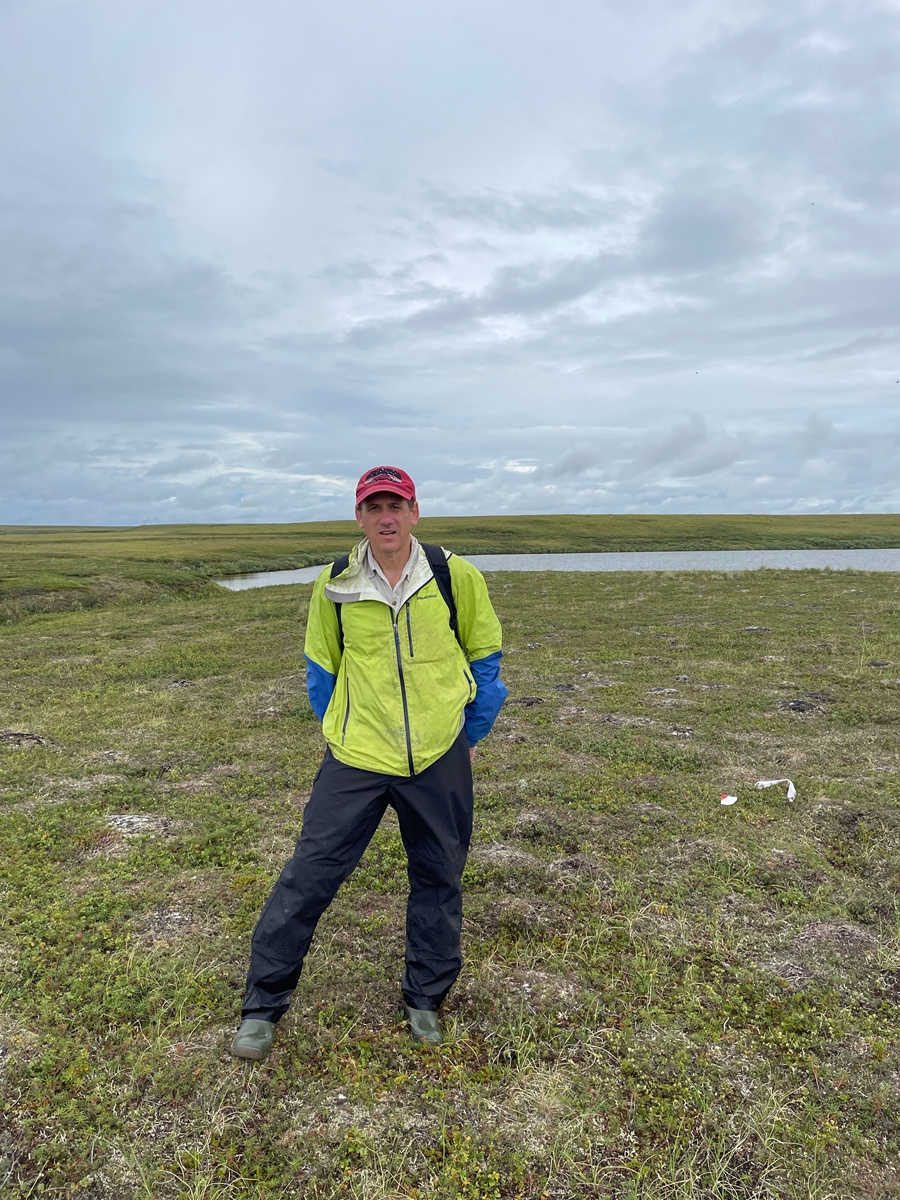FAYETTEVILLE, Ark. – Peter Ungar, distinguished professor of anthropology at the University of Arkansas, and several colleagues focused on the Arctic have received a $3 million grant from the National Science Foundation to study the effect of climate change, globalization and infrastructure development on the increasingly precarious region.
One of the NSF’s 10 Big Ideas, “Navigating the New Arctic” will address interactions among social systems, natural environment and built environment in the Arctic bioclimatic subzones of Yamal, a region in northern Russia, which serves as a small-scale and manageable research model for the Arctic as a whole.
The goal of the project is to understand how natural, social and built environments within the region respond to stress brought about by climate change, globalization and infrastructure development. Specific projects will examine the impact of tall vegetation on animals and reindeer herders; changing snowpack influence on food webs and animal population dynamics; the effect of the built environment on the reindeer herding system, including interactions between industrial workers and indigenous people; and reindeer management, including how social institutions and markets for reindeer products affect community resilience, indigenous traditions and practices, and landscape structure.
With $634,000 of the total $3 million grant, Ungar will lead the biotic/ecosystem team within the larger project. Their field ecology work will focus on Arctic foxes, rodents, reindeer and plant phenology.
Valeriy Ivanov, professor of civil and environmental engineering at the University of Michigan, is the primary investigator on the project and will lead the abiotic team. John Ziker, department chair and professor of anthropology at Boise State University, will lead anthropological efforts. Aleksandr Sokolov, manager of the Arctic Research Station in Yamal, is the lead Russian partner.
Earlier this year, Ungar and several colleagues published findings in Polar Biology and Mammalian Biology indicating that the diet of Arctic foxes and habitats of various rodent species, as determined by the condition of their teeth, show how varying climate conditions and environments in the Arctic affect animals living there. The researchers compared the condition of Arctic fox and rodent teeth over space and time and found differences in tooth wear patterns related to variation in preferred foods and habitat types.
Studying the effect of varying climate conditions within this region helps scientists understand the impact of climate change on vulnerable animals and could explain future responses and adaptations, given the warming trend and thawing in Arctic areas.
Seasonal shifts, thawing permafrost, and extreme weather conditions in the Arctic have had a strong impact in the natural and human worlds. Plants and animals are changing seasonal and ranging patterns. These changes put increased pressure on the livelihoods of the Arctic people.
Other factors, such as globalization and the growing presence of industrial and urban centers, also affects the Arctic tundra and livelihoods of indigenous peoples. By considering impacts of multiple climatic and socioeconomic drivers on the functioning of an increasingly industrialized region, this project will illuminate processes that represent potential threats to the well-being of Arctic communities.
This project includes awards to the University of Michigan; Kansas State University; Boise State University; The Ohio State University; Georgia Tech Research Corporation; the University of Colorado Colorado Springs; Macalester College in St. Paul, Minnesota; Tromso University in Norway; University of Lapland in Finland; University of Colorado Boulder; Oxford University in England, Russian Academy of Sciences, Urals Branch; and non-governmental organizations in France and the United Kingdom.
Ungar is director of the Environmental Dynamics program at the University of Arkansas.
About the University of Arkansas: As Arkansas' flagship institution, the U of A provides an internationally competitive education in more than 200 academic programs. Founded in 1871, the U of A contributes more than $2.2 billion to Arkansas’ economy through the teaching of new knowledge and skills, entrepreneurship and job development, discovery through research and creative activity while also providing training for professional disciplines. The Carnegie Foundation classifies the U of A among the top 3% of U.S. colleges and universities with the highest level of research activity. U.S. News & World Report ranks the U of A among the top public universities in the nation. See how the U of A works to build a better world at Arkansas Research News.
Topics
Contacts
Peter Ungar, distinguished professor of anthropology
Fulbright College of Arts and Sciences
479-575-6361, pungar@uark.edu
Matt McGowan, science and research communications officer
University Relations
479-575-4246,
dmcgowa@uark.edu
